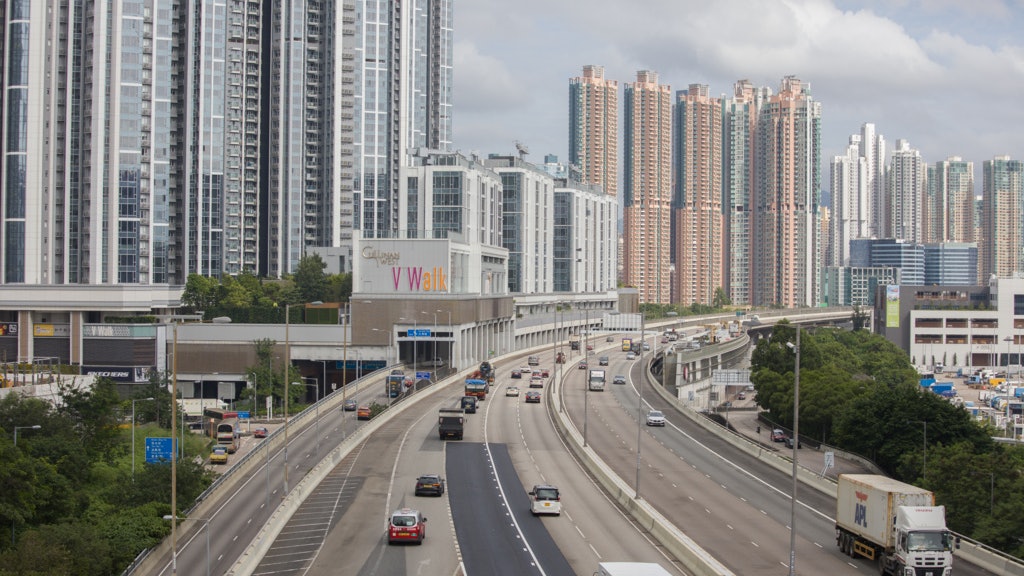Xi Jinping, General Secretary of the Communist Party of China, mentioned in the "20th National Congress Report": "Support Hong Kong and Macau to develop the economy, improve people's livelihood, and solve the deep-seated contradictions and problems in economic and social development." What is said, but the words are different, there is no unified statement.
"Hong Kong 01" raised two questions to the Chief Executive's Office, various policy bureaux and members of the Legislative Council on the content of Xi Jinping's speech above, namely, how to understand the "deep-seated contradictions" in Hong Kong and how to counteract them.
Neither the Chief Executive's Office nor the Policy Bureau responded, and the responses from Members also came from different angles, showing that the political circles have different understandings of this issue. They are mainly divided into four categories. The following Members focus on a single major issue and propose solutions.
Wu Jiezhuang.
(File photo/Photo by Yu Junliang)
Wu Jiezhuang: Hong Kong people lack a sense of ownership and should cultivate a sense of belonging
Wu Jiezhuang believes that issues such as housing, the rise of young people, and the disparity between the rich and the poor are not unique to Hong Kong. The most fundamental problem is that most Hong Kong citizens lack a sense of ownership and think that the development of the country and the development of Hong Kong has nothing to do with them, which will lead to ideology over time. A sense of alienation, in other words, the loss of a sense of belonging to the Chinese nation.
Therefore, in order to solve the housing problem and promote industrial diversification, it is necessary to enhance citizens' sense of ownership in participating in the construction of society, and to recognize the country's institutional advantages and true development.
He suggested that the government actively encourage young people to understand the national conditions, understand the country's development achievements and international status from multiple perspectives, let the young people experience the central government's concerns for Hong Kong and what policy support it has provided, and eliminate misunderstandings about the country in the past, so as to promote Young people take the initiative to integrate into national development.
This process cannot be accomplished overnight, but Wu Jiezhuang believes that by letting Hong Kong people understand the national conditions and their development orientation under "One Country, Two Systems", the SAR government, with the trust and support of the whole people, can solve Hong Kong's "deep-seated contradictions" with half the effort and just around the corner.
Lin Suwei.
(File photo/Photo by Liao Yanxiong)
Lin Suwei pointed to the plight of the middle class and called for more policies to reduce the burden
Lin Suwei pays special attention to the plight of the middle class, saying that the middle class "makes more money and costs more", pays more taxes and less benefits, has a heavy living burden, and has to take care of the elderly and children in the family. poor.
They feel neglected by the government for a long time, and they have a lot of grievances over time.
The new generation of young middle-class people also have to face the difficulty of getting on the bus, their salaries cannot keep up with the increase in property prices, and the HOS housing exceeds the upper limit of income.
The pressure of middle-class life cannot be ignored. According to statistics from the Census and Statistics Department, the number of middle-class people suffering from mental illness and emotional disorders is as high as 25,000, a significant increase from 8,000 in 2013. The situation is worrying.
The recent wave of immigration, which includes highly educated and highly skilled individuals, has had a great impact on the labour market in Hong Kong.
In order to resolve this "deep contradiction", Lin Suwei expressed the need to reduce the financial burden for the middle class and the sandwich class. For example, Hong Kong people whose parents live in the Mainland are currently unable to receive parental allowances, stressing that policies that benefit the middle class are the key to solving the problem.
Jon Hayen.
(file picture)
Rong Haien urges to find opportunities in the Greater Bay Area to help young people move up the ladder
Two MPs focused on the issue of youth upwards.
Rong Haien pointed out that if we can effectively assist youth development, other livelihood problems can be alleviated, and integration into the overall situation of national development is definitely the only way to resolve conflicts.
Rong Haien pointed out that the Greater Bay Area will bring more opportunities for Hong Kong youth and open up space for upward mobility.
She said that on the basis of "one country, two systems", Hong Kong should give full play to its unique advantages of "backing up to the motherland and connecting the world", and strive for cooperation among the international community. Mutual recognition of qualifications and accelerated development of the "Northern Metropolitan Region" will bring more choices and opportunities to young people by strengthening connections with cities in the Greater Bay Area and around the world.
At the same time, the government should also do a good job in education and publicity, so that young people can understand the development of the country as early as possible, and recognize their own interests and skills, and properly equip themselves to gradually solve the problems of the upper class.
Lin Lin.
(file picture)
Lin Lin: The mismatch between education and career prevents young people from building career ladders
Lin Lin said that "deep-level contradictions" were known to everyone in the past, but were difficult to solve in a short period of time, and youth upwards was one of them.
She believes that it is necessary to review the development direction of Hong Kong, and the "Policy Address" lists that Hong Kong's future is developing towards high value-added development, but there is a considerable shortage of talents in financial technology and artificial intelligence. If education fails to keep pace with the times, students will work after graduation. Failure to apply what we have learned will not help Hong Kong's future social development momentum.
Lin Lin believes that the contradiction of young people's studies lies in the fact that they have to bear school debts after graduation, but in the face of too many people, they cannot find full-time jobs, so as to establish a career ladder, which is why some young people choose to be slashers (slashers).
Li Dongguo.
(File photo/Photo by Liao Yanxiong)
Lai Tung Kwok: The long-term shortage of land and housing, the direction of simple public housing is correct
Two Members also focused on the issue of land and housing.
Lai Tung-kwok pointed out that one of the deep-seated problems in Hong Kong is the long-term shortage of land and housing. As a result, people waiting for public housing have to wait for six years or more, and a large number of people live in unsuitable housing such as subdivided housing with poor living conditions.
Li Dongguo proposed to speed up the construction of land and houses, so that grassroots citizens can go upstairs as soon as possible.
He mentioned that the central government and the SAR government are very concerned about this issue. For example, Xia Baolong, director of the Hong Kong and Macau Affairs Office, proposed that Hong Kong should "say goodbye to subdivided housing and caged houses."
After taking office, Chief Executive Lee Ka-chiu also established the "Land and Housing Supply Coordination Unit" and the "Public Housing Project Action Working Group" to coordinate the work related to land and housing, and promised to supply "simple public housing" in the "Policy Address".
Li Dongguo pointed out that these measures are in the right direction and hope to achieve results soon.
Ge Peifan.
(File photo/Photo by Zhou Haoyi)
Ge Peifan: The housing problem has made the public feel frustrated and urged to continue to speed up the supply
Ge Peifan also focused on the housing problem. He pointed out that the housing supply is seriously unbalanced, the property prices and rents are beyond the affordability of the public, the grassroots are "difficult to go upstairs", resulting in the spread of "subdivided housing", young people are "difficult to get on the car", and the units are getting smaller and smaller. Citizens are frustrated.
Ge Peifan said that the "Policy Address" mentioned simple public housing, accelerated housing construction by assembly and synthesis, and capping the waiting time for public housing, which are the first steps to solve the "difficulty in going upstairs".
She suggested increasing the plot ratio of residential projects to increase the supply, and studying to gradually increase the per capita living area so that everyone can "live well". It is also necessary to further streamline the approval process for development projects, and use new technologies and technologies to help speed up construction projects.
Special topic ︱Deep-level contradictions Speaker Renshu's four-way interpretation topic Most concerned about housing, the disparity between the rich and the poor








/cloudfront-eu-central-1.images.arcpublishing.com/prisa/D3KKZZA5HZBEDA4TSYE7XVGSKQ.jpg)
